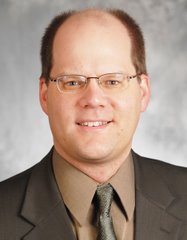Omnibus Health and Human Services Bill, April 21, 2007
The HHS bill (SF2171/HF297) has the reputation for being one of the more difficult bills to deliberate on the floor—even more than education. The reason for this is that the bill includes funding and policy language on nursing homes, public assistance for needy families, family planning, mental health, and so on.
Here are some highlights of the bill.
1. Health care reform. My colleague from Woodbury, Rep. Julie Bunn, has taken the lead in reform to help reduce health care costs for the 92% of us who have health coverage. Selected initiatives in this bill include
* pilot programs for payment reform; community collaboratives; medical home treatment to help keep some patients at home instead of at a hospital or nursing home; and more coordination of your medical care by your primary health care provider
* uniform billing methods and movement toward electronic health records with important new data practices protections
2. Nursing home reimbursement rates in Greater Minnesota would rise to the same level as the Twin Cities metro area. (Our district does not have a nursing home, although there are several senior rentals and assisted living facilities in Shoreview.)
3. Nursing home rates would go through a "re-basing" process for the first time since 1993 by which rates would reflect current needs. There is a concern that some nursing homes around the state will close in the next few years without re-basing.
4. Under this bill, the 70,000 uninsured children in Minnesota would have health coverage by 70,000.
Some observations:
There were concerns by pro-life constituents that there would be a cut in the Positive Alternatives program, which is a crisis program for pregnant women. This bill funds what the Governor proposed and was not cut. There was a sizable increase in the funding available for pregnancy prevention.
There was one amendment (out of about 50) that I supported (S2171A102) by Rep. Bruce Anderson (R-Buffalo) that would shift money to pandemic flu planning by deleting money for an unrelated study. I studied pandemic flu when I worked in the solid waste area and I respectfully disagreed with the lack of funding available in this bill. I also voted for an amendment (HDA-321) by Rep. Marty Seifert (R-Marshall) that would prohibit the purchase of alcohol and tobacco by Minnesotans on public assistance who use a state debit card. I didn't write down the amendment number on another amendment by Rep. Seifert that I voted for, which would prohibit public assistance for convicted felons from other states.
Another observation: I learned that two-thirds of this bill deals with nursing homes and the disabled. Only two percent of the state budget goes to what is referred to as "welfare."
I voted for the bill—at about 1:30 a.m. on Saturday morning—and it passed 86-45. This was the final finance bill for the House, and we did this two weeks ahead of when other recent legislatures have passed finance bills.
